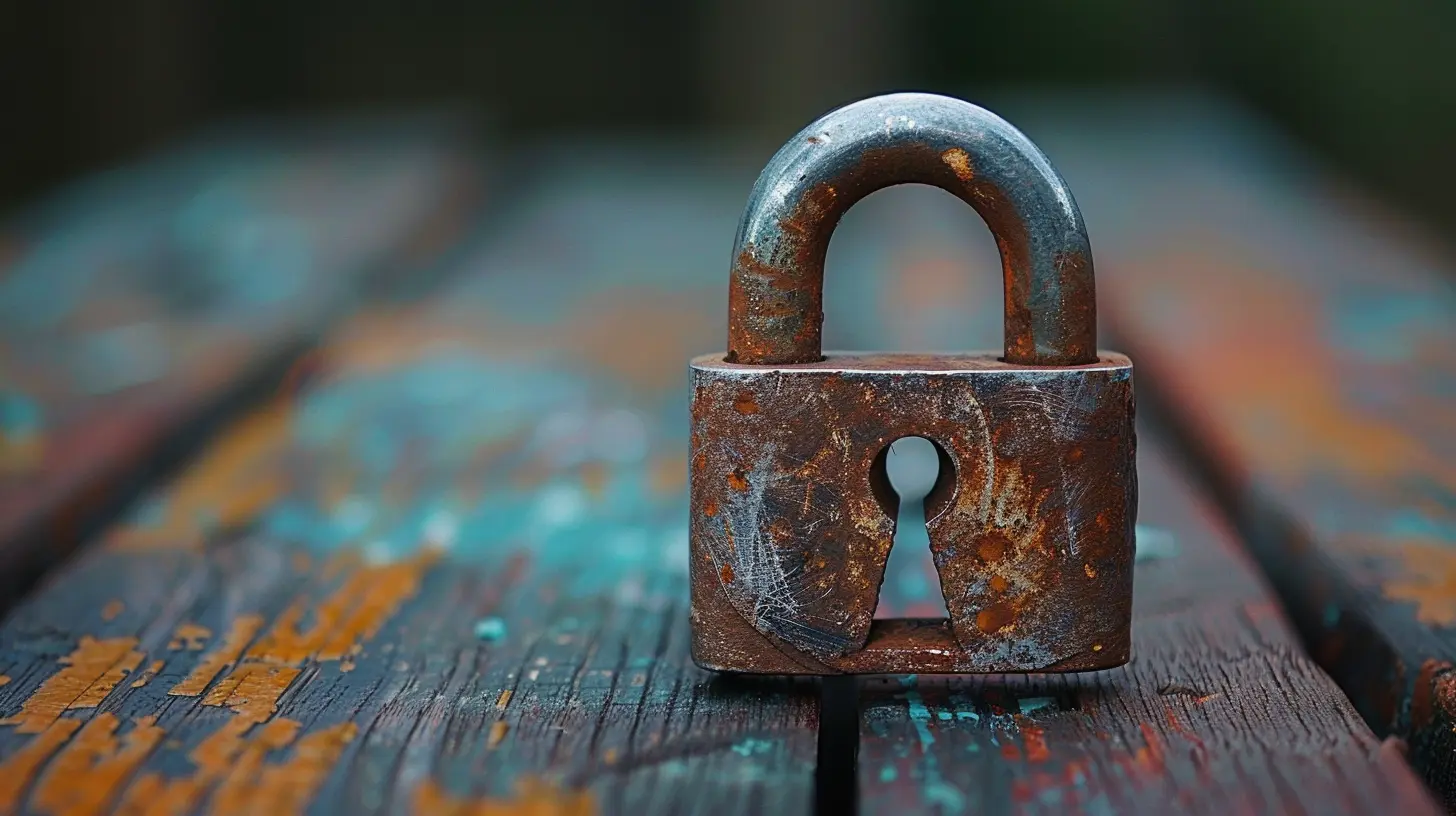Estate Planning vs. Asset Protection: Understanding the Differences
20 June 2025
Let’s be honest—financial jargon can feel like a different language. "Estate planning" and "asset protection" might sound like topics reserved for millionaires in mansions or lawyers in tall buildings, but they’re actually super relevant for everyday folks like you and me.
If you’ve ever wondered how to keep your money safe and pass it along to your loved ones without giving half of it to Uncle Sam (or the debt collector), you’re in the right place. We're going to peel back the layers of these two powerful financial strategies and figure out the real deal: what they're for, how they're different, and why you probably need a bit of both in your life.
Let's break this all down in plain English – no legal mumbo jumbo allowed.
What Is Estate Planning Anyway?
Estate planning is like setting up a GPS for your money and belongings after you're gone (or even while you're still kicking). It's not just for the rich and famous—it’s for anyone who wants to make life easier for the people they leave behind.Your Legacy, Your Way
An estate plan is your way of saying, “Hey, when I’m no longer here, here’s exactly what I want to happen with my stuff.” That includes your house, savings, car, investments, jewelry, pets, your favorite guitar—you name it.Estate planning typically involves:
- Wills and trusts (who gets what and how)
- Power of attorney (who makes decisions if you can’t)
- Healthcare directives (your medical wishes)
- Guardianships (who raises your kids if something happens to you)
Think of it as writing the instruction manual for your life’s leftovers.
What Is Asset Protection?
Now, asset protection is the personal bodyguard for your wealth. It's all about legally shielding your assets from lawsuits, creditors, and sometimes even the government. This strategy isn’t just for celebrities dodging lawsuits or shady businessmen—it’s for regular people who want to keep what they’ve worked hard for.Keeping What’s Yours, Yours
Let’s say you end up in a lawsuit (even if it's totally unfair). Asset protection can make sure your house, retirement savings, or business isn’t taken to pay a judgment. Sounds good, right?Asset protection includes things like:
- Limited Liability Companies (LLCs)
- Trusts that are legally insulated from creditors
- Insurance policies
- Asset titling strategies
In a nutshell, it’s like locking your valuables in a vault before the storm hits, instead of scrambling for cover after.
So, What’s The Big Difference?
Despite how similar they might sound, estate planning and asset protection are two completely different beasts. Think of it like this:➡️ Estate Planning = “What happens to my stuff when I die?”
➡️ Asset Protection = “How do I protect my stuff while I’m alive?”
Pretty clear right? But wait, there’s more nuance.
| Feature | Estate Planning | Asset Protection |
|-------------|----------------------|------------------------|
| Focus | Managing assets after death or incapacity | Protecting assets during your lifetime from legal threats |
| Legal Tools | Wills, trusts, power of attorney, healthcare directives | Trusts, LLCs, insurance, homestead exemptions |
| Goal | Smooth and tax-efficient transfer of wealth | Minimize risk of losing property/money to lawsuits or creditors |
| Timing | Mostly comes into play after death | Active while you’re alive |
| Beneficiaries | Usually focused on heirs, family, charities | You (primarily), and indirectly your loved ones |
They complement each other like peanut butter and jelly. You wouldn’t want to skip one if you're trying to keep your financial sandwich intact.
Why You Need Both (Yes, Really)
Here’s the kicker: you shouldn’t pick one over the other. Estate planning and asset protection go hand-in-hand like best buds. Without a solid estate plan, your family might face chaos and court battles. Without asset protection, everything you’ve built could be snatched away before your loved ones even get a chance to inherit it.Let’s look at a real-world scenario:
🤔 Imagine you’re a small business owner. You’ve built a successful company, saved for retirement, and bought a house. You don’t have a will or a trust, and your personal and business finances are tangled up like spaghetti. Then—bam!—you get hit with a lawsuit from an unhappy ex-client. Your personal assets are now on the line.
Now imagine you had:
- An LLC separating your business from personal life
- A trust that controls how your assets get passed down
- Proper insurance coverage
- A will that clearly names your heirs
Suddenly, you’re not scrambling. You're protected. Your estate is planned. You've got your financial ducks in a row.
Boom. Crisis (mostly) averted.
Tools Used in Estate Planning vs. Asset Protection
Let’s go a bit deeper and look at the tools each strategy uses. You don’t need to be a legal eagle to understand these.🧰 Estate Planning Toolbox:
- Will: Your “this is who gets what” letter to the world.- Living Trust: Avoids probate and gives more control over asset distribution.
- Durable Power of Attorney: Lets someone manage your financial affairs if you can’t.
- Healthcare Proxy & Living Will: Makes your medical wishes crystal clear.
- Beneficiary Designations: Think IRAs and insurance policies—don’t forget to update these!
🛡️ Asset Protection Toolbox:
- LLC/Corporation: Keeps personal and business finances legally separate.- Domestic Asset Protection Trusts (DAPTs): Offers protection from creditors while giving you some control.
- Insurance: Liability, life, umbrella coverage—it’s all about reducing risk.
- Homestead Exemption: In certain states, your primary residence has built-in protection.
- Retirement Accounts: Some are shielded more than others—know what’s protected in your state.
Knowing which tools to use is half the battle. Working with a knowledgeable attorney or financial planner can help you map this out based on your specific needs.
Common Mistakes (And How to Dodge Them)
Let’s face it—we don’t love talking about death, lawsuits, or financial disasters. So, a lot of people procrastinate. But waiting too long (or not planning at all) can lead to some face-palm-level blunders.Here are a few to avoid:
🚫 Thinking a will is enough: A will alone doesn’t avoid probate. Trusts offer more control and privacy.
🚫 Putting everything in joint ownership: Seems smart, but it can create chaos during estate settlement or with taxes.
🚫 Not reviewing your plan: Life changes—marriages, divorces, kids, new homes. Update your plan as needed.
🚫 Assuming you're “too small” to protect: Lawsuits happen. Creditors knock. Even modest estates need shielding.
🚫 Trying to DIY the whole thing: Some things are better left to professionals—you don’t want to mess this up.
When Should You Start?
🎯 Short answer: Yesterday.Longer answer: The best time to set this stuff up is when things are calm. Don’t wait for a health scare, divorce, or legal threat. By then, it might be too late to shield your assets or control how your estate is handled.
A good rule of thumb? If you own anything of value—home, car, savings, business—or have people who depend on you, then it’s estate and asset planning time.
Final Thoughts: Plan Now, Thank Yourself Later
Think of estate planning and asset protection like financial feng shui. You’re arranging everything in a way that flows smoothly, protects your peace of mind, and steers clear of disaster.You don’t have to be old, wealthy, or on the brink of retirement to get started. In fact, the earlier you begin, the more secure your future (and your family’s future) will be.
So grab a coffee, sit down with a financial pro, and start putting your plan together. Your future self (and your loved ones) will be endlessly grateful you did.
FAQs
1. Can one plan cover both estate and asset protection?
Not usually. While there’s some overlap (like trusts), these strategies serve different purposes and should be crafted separately, yet cohesively.2. Are trusts only for rich people?
Nope! Trusts are super useful for people at all income levels who want control, privacy, and legal protection.3. Is asset protection legal?
100%—as long as you plan it before creditors or lawsuits show up. Once you're being sued, it's too late.4. Do I need a lawyer?
It’s highly recommended. Laws vary by state, and professionals can make sure your plan actually works and holds up in court.5. How often should I update my plan?
Every 3–5 years, or after any major life event (marriage, divorce, new child, buying a home, etc.all images in this post were generated using AI tools
Category:
Asset ProtectionAuthor:

Zavier Larsen
Discussion
rate this article
2 comments
Evangeline Allen
Estate planning focuses on the distribution of assets after death, ensuring wishes are honored, while asset protection safeguards those assets from creditors. Both are essential for financial security, yet serve distinct purposes in wealth management.
June 23, 2025 at 3:42 AM

Zavier Larsen
Thank you for your insightful comment! You’ve captured the key distinctions perfectly—both estate planning and asset protection are crucial for comprehensive wealth management.
Iliana Hernandez
Great article! Understanding the distinction between estate planning and asset protection is crucial for effective financial management. Clear insights like these help readers make informed decisions about their future. Thank you!
June 21, 2025 at 12:30 PM

Zavier Larsen
Thank you for your kind words! I'm glad you found the article helpful in clarifying these important concepts.


